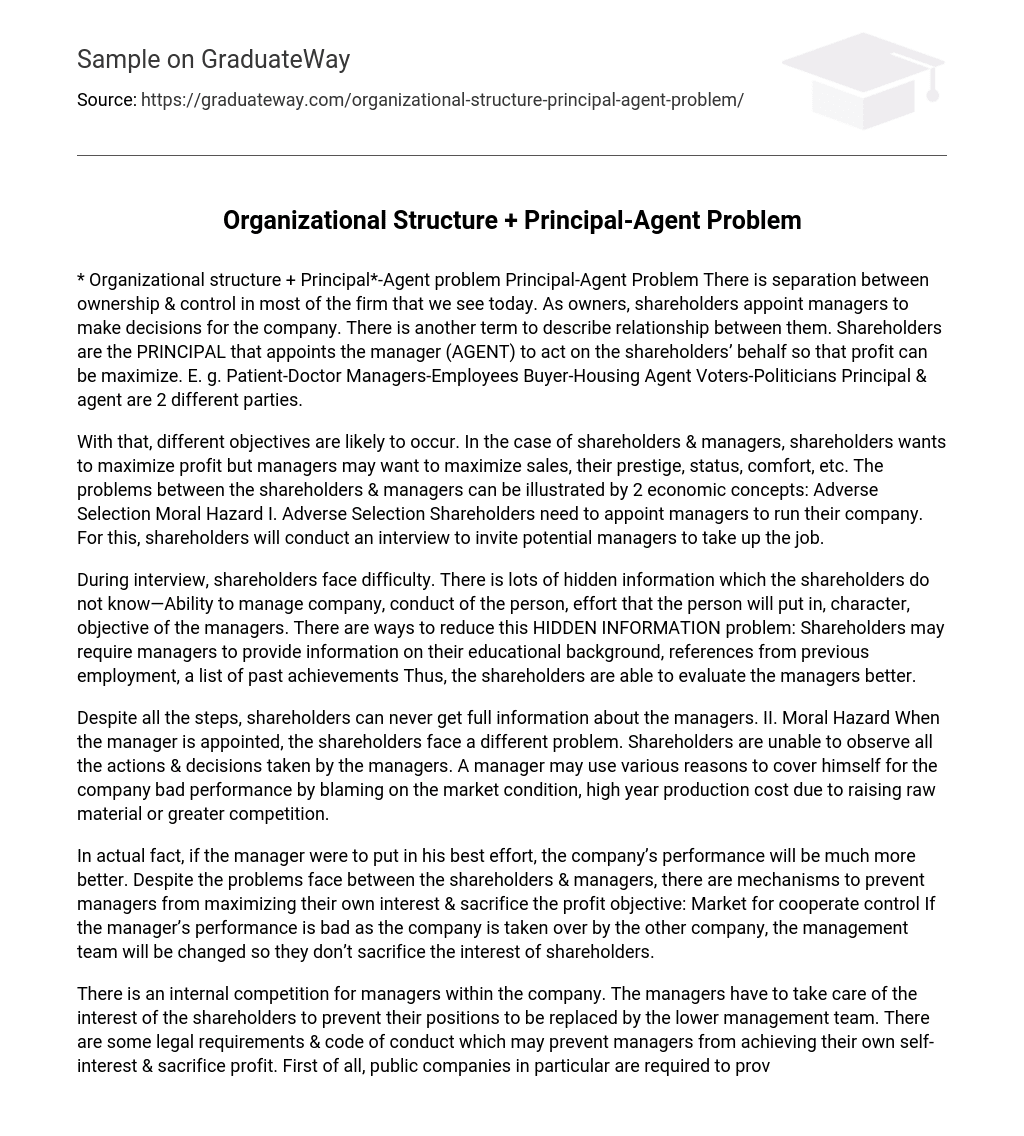When the manager is appointed, the shareholders face a different problem. Shareholders are unable to observe all the actions & decisions taken by the managers. A manager may use various reasons to cover himself for the company bad performance by blaming on the market condition, high year production cost due to raising raw material or greater competition.
In actual fact, if the manager were to put in his best effort, the company’s performance will be much more better. Despite the problems face between the shareholders & managers, there are mechanisms to prevent managers from maximizing their own interest & sacrifice the profit objective: Market for cooperate control If the manager’s performance is bad as the company is taken over by the other company, the management team will be changed so they don’t sacrifice the interest of shareholders.
There is an internal competition for managers within the company. The managers have to take care of the interest of the shareholders to prevent their positions to be replaced by the lower management team. There are some legal requirements & code of conduct which may prevent managers from achieving their own self-interest & sacrifice profit. First of all, public companies in particular are required to provide an annual report to the shareholders. An external auditor is needed to check the company’s account & verify the annual report.
By having all these, actions taken by the managers can now be better analyzed by the shareholders. This prevents managers from trying to achieve their own satisfaction. On top of this, a board of directors is also formed to check on the managers’ decision making. This board of directors is made up of executive directors (directors who are also managing the company) & non-executive directors (external parties). In Malaysia, there is a suggested rule for good practice.
At least one third of the members in the board of directors must be non-executive. With this, the monitoring of the managers’ actions becomes more credible. Reward System Managers can be given some kind of rewards/incentives to encourage them to make decisions which helps shareholders to get maximum profit. There are few types of reward system: Shareholders get a fixed dividend, the rest—manager’s income. In this reward system, shareholders will successfully get the managers to maximize profit because the managers’ ncomes are directly linked to the profit figure. This system however suffers from a major weakness—all risks are taken over by managers. (This is considered to be unfair)
Managers get a fixed income In this reward system, receiving fixed amount of income does not motivate managers to maximize profit on shareholders’ behalf. Greater efforts by managers are not rewarded which lower effort is not penalized since the income received is fixed. There is one advantage however—Manager will bear less risk & feel more secured in their employment.
Reward based on past year profit performance ( 1 year) In this reward system, managers will be more motivated to maximize profit. However, managers will have tendency to make business decision that create immediate impact within that 1 year while rejecting decisions which brings profit at a later point in time. Decisions to expand a factory, decisions to carry out research & development—all these decisions will only bring profits after a few years.





